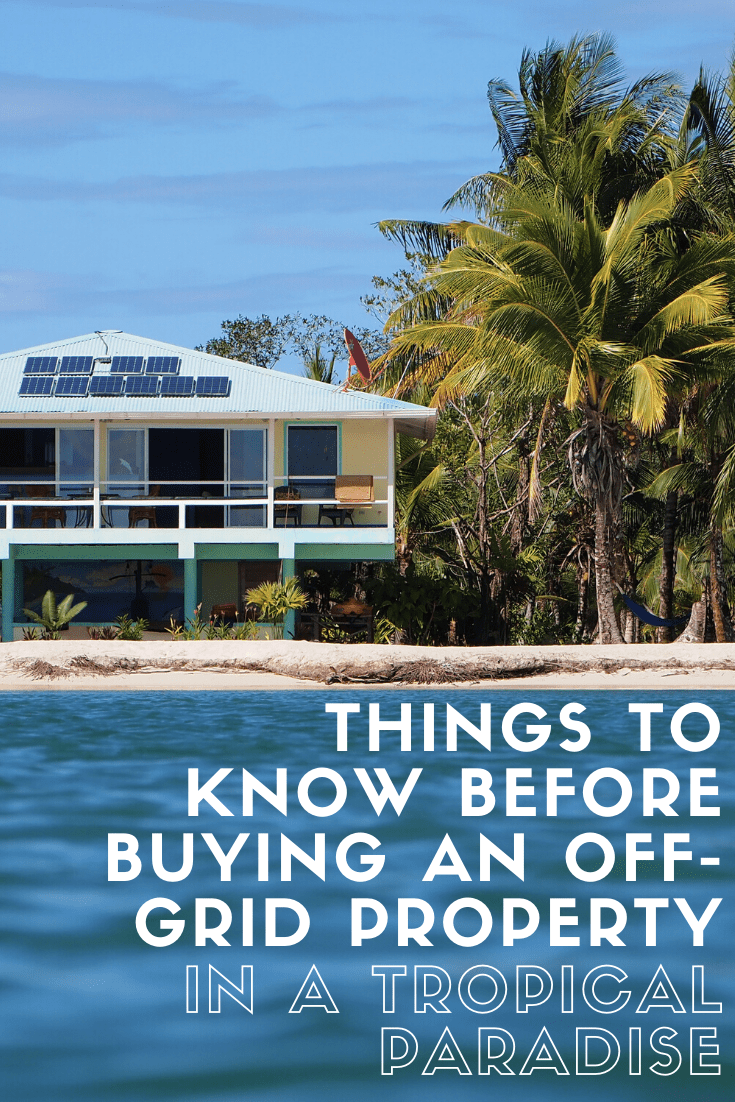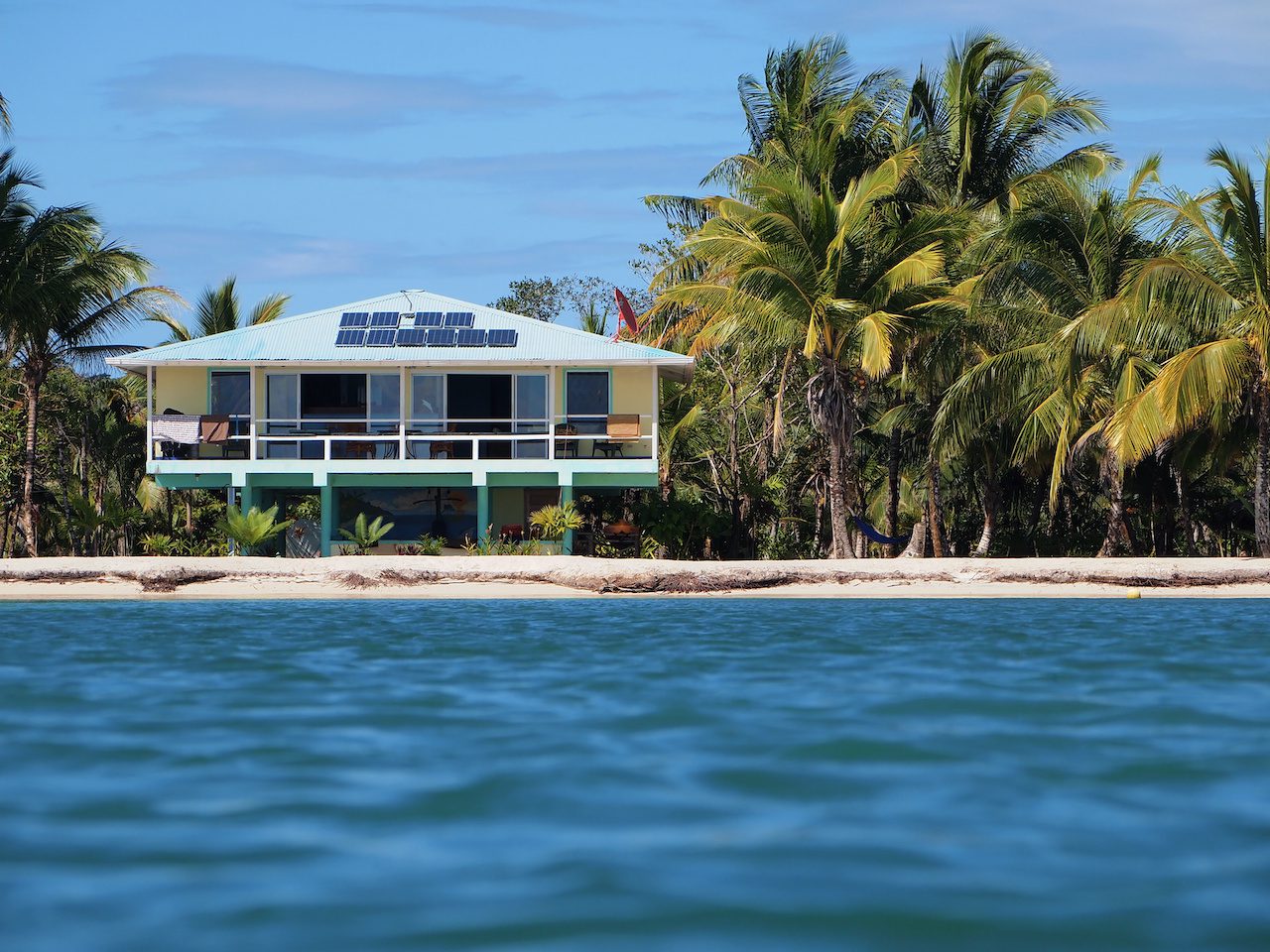Things To Do in Dubrovnik Croatia
Things To Do in Dubrovnik Croatia Dubrovnik, Croatia is a walled city with a rich and remarkable history located on the Adriatic coast. The city started as a settlement on the island of Laus,...
Being the owner of an off-grid property in a tropical paradise is an enticing prospect. Whether you want to transform it into a primary residence, a vacation home decorated to your and your family’s taste, or you want to create eco-friendly accommodation for tourists, a property located in an attractive natural spot has immense potential for development.
If you are looking to buy an off-grid Caribbean home, this is the post for you. We hope that these Things to Buying an Off-Grid Property posts inspire you.

However, while your dream can become reality, it’s important to realize that property ownership comes with a lot of responsibility.
If your property is remote, located in a region or climate you’re not familiar with, be prepared for a learning curve when it comes to things working smoothly. Here are some key things to know before fulfilling your dream of purchasing an off-grid property in a tropical haven.
The crucial aspect that attracts people to the tropics is the promise of year-round sunshine and refreshing summer vibes. As a property owner, however, do not forget that extreme weather conditions are common for the tropical climate.
This includes heavy rain, storms, and hurricanes. After all, the green lush that it’s so common in the tropics is a result of the heavy rain.
Since hurricanes and storms can be devastating, you’ll have to take precautionary measures to preserve the integrity of your property. From selecting building and renovation materials to choosing power sources, everything must be done with consideration for the possibility of extreme weather.
One of the greatest risks is having your property flooded during a storm or hurricane. So, you’ll have to learn about running a sump pump, restarting a generator, and other similar things.
Besides hurricanes and storms, the weather in the tropics is characterized by intense heat. For many months of the year, cooling off is only possible by jumping in the water or staying in an air-conditioned room.
If you want to feel comfortable and enjoy your time there, don’t underestimate the unpleasant effects of the torrid heat and choose a property where the breeze is stronger.

The purpose of an off-grid property in a tropical paradise is to have a personal relaxation haven or a base for outdoor activities like hiking or swimming. The last thing you want to deal with is bureaucracy.
Unfortunately, as a property owner, you’ll have direct contact with the government administration since you’ll have to pay property taxes and perhaps even get a residency permit, depending on the country’s legislation.
Whether you have your eyes on a Caribbean island or a nice coastal city in Southeast Asia, expect to have to deal with rules, regulations, and restrictions that you’re not familiar with or that will not make you feel welcome.
Different rules and regulations mean that in addition to the purchase price of the property, you might have to pay other unexpected fees to become a property owner.
Land transfer fees, attorney’s fees, valuation, or survey fees are only some of the most common costs you have to account for.
Of course, owning a property in a foreign country is useless if you cannot visit and leave according to your wishes, but visa restrictions might put a damper on your dreams.
Some countries ask you to apply for a residency permit or pay a hefty non-resident fee before allowing you to purchase a property.
If you want a property located in a remote, paradisiacal location you have to be ready for the challenges of living off the grid, which can be harsh, depending on how remote you are.
Looking beyond the postcard experience and the dreams of tranquillity and rewarding immersion in nature, it’s important to have a plan for the more practical aspects of living.
Depending on the goals behind your purchase, you have to establish the minimum requirements that are essential for you to feel comfortable with your plan.
Is there adequate health support nearby in case of an emergency? If the infrastructure is weak and underdeveloped, how can you bring materials for construction or renovation?
Are the roads minimally functional at all times or are you in danger of getting stuck in case of flooding?
Before spending money to buy your piece of natural heaven, it’s thus important to do extensive research on locations and local conditions.
In some islands, for example, importing materials or supplies can be quite expensive so you’ll have to resort to what you can find locally.
A great love for the beach, the ocean, nature, and tranquility can tempt you to buy a property in a tropical location, so you can enjoy all these at your will. Now you can buy an off-grid Caribbean home.
In the pursuit of your dream, don’t neglect the challenges that may arise along the way. We hope that this Buying an Off Grid Property post inspires you.